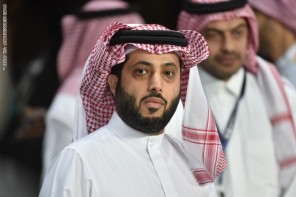“I support Saudi Arabia and half of the Saudi population is women, that’s why I support women.” – Prince Mohammed Bin Salman, Saudi Crown Prince
Saudi Arabia is experiencing an exciting transformation with progressive reforms under the guidance of the leadership, with Saudi Vision 2030 offering a bright future and creating hope for this generation and those to come. This year, even as COVID-19 continues to bring devastating personal and professional losses and economic disaster worldwide, Saudi transformation projects are moving forward, resulting in strong reform momentum across women’s issues. As shown by the World Bank 2021 report, the Kingdom added important amendments to the employment and labor laws, not only substantially increasing the labor force participation of women but also providing those Saudi women who were already highly educated and qualified with new leadership roles, an integral part of a successful society. A strength of the Kingdom’s leadership is their realization that now is the right time to begin the progressive actions enabled by Saudi Vision 2030, and the people in our society are eager to embrace the new opportunities and adventures.
How did your career as a scientist commence?
I am by nature a curious individual, full of questions. I was drawn to scientific research because I realized that it would allow me to discover answers to many of those questions. However, as I progressed in my career, I found that science and medical research are not only beneficial for finding cures for diseases but are elements essential to every aspect of our lives. You cannot make a good decision without doing at least a little research, regardless of the topic. My education and research experience have equipped me with the tools to solve any challenge. But this knowledge and experience has also provided a solid foundation on which I have learned to make important decisions and choices in all other aspects of my life, as I tackle different projects spanning from women’s health research to advocacy and women’s health rights.
What fascinates you the most about the field of microbiology?
Our bodies are composed of more microorganisms than human cells—trillions of microorganisms. I am constantly amazed by this fact. Because they make up most of our bodies, microorganisms play a vital role in all aspects of our health, and that is why I decided to explore the fascinating world of microbiology. As I advanced in my career, I chose to focus my research on viruses that affect women’s health, especially those that cause sexually transmitted infections or cancer. My choice turned out to be gratifying for me because it aligns with my desire to advance women’s health issues and because research, awareness, and advocacy on these sensitive topics are crucially needed throughout the Kingdom.
And speaking of generations, how optimistic are you about what’s happening on the Arab scene, especially in regard to women in sciences?
UNESCO and other organizations have been outspoken about the global underrepresentation of women in the fields of science, technology, medicine, and math, called STEMM. However, I have not seen this underrepresentation in the Arab region, where women actually outnumber men in STEMM fields. In Saudi Arabia, for example, women represent 58% of university students, with many majoring in one of those fields. We are also expanding the inclusion of women in engineering and other roles traditionally filled by men. Women in Saudi have already made a mark in STEMM with their commitment and ambition, and with the current government’s support, I believe the best is yet to come.
As a young Saudi student how would you describe your experience of living and studying at American universities?
Travelling to the U.S. has been the most rewarding experience of my life. It has changed me in so many ways. I went to the U.S. after obtaining my Bachelor’s degree to pursue my higher education. In addition to a formal education, I also learned the importance of volunteering and engaging in community service. I became aware of student associations and the strengths of non-government organizations. I learned how to excel in different disciplines and how to be active and proactive in my community.
Harvard Medical School is a dream of every overachiever, is it as challenging as it’s perceived to be?
I was fortunate to join Harvard Medical School in 2014 for an intensive clinical research program. Although I was a little nervous at first, I was also extremely excited for the opportunity and that excitement prevailed. I would not describe my experience as frightening but as filled with a richness that comes with making a full commitment to join this prestigious institution and to take advantage of all it has to offer. The Harvard faculty have a unique way of delivering knowledge that fits well with my style of learning. After completing that first year, I joined several more programs at Harvard, and every time I finish a course, I am hungry to join another. My most recent program concluded just last month. This course was called Program for Leadership Development, an accelerated executive MBA program provided by the Harvard Business School. I plan to apply the skills I learned and use the contacts I made there—contacts who feel more like friends than mere colleagues and mentors—to move forward with the next phase of my career.
While studying at Harvard Medical School were you urged to work harder to prove yourself? And did you feel that you are not only representing yourself but also Saudi women in general?
In every task or endeavor I undertake inside or outside the kingdom, not just at Harvard, I always remember that I am a Saudi ambassador. I work hard to reflect the high caliber and excellent education that I received in Saudi Arabia and the core values of my family and culture.
You have also founded Rofaida Women’s Health Organization. Please tell us more about its mission
Rofaida came about as part of the empowerment of women in Saudi Arabia. Twenty-five believers in women’s health started this organization in 2016. HRH Princess Moudi Bint Khalid, who is a pioneer in the non-governmental organization sector in Saudi Arabia and has more than 40 years of experience, took us under her wing. Her leadership positioned Rofaida, with a unique specialty (women’s health) not only in Saudi Arabia but in the Middle East, to be among the top new non-governmental organizations thriving in the country. We called the organization Rofaida, which in Arabic means “a haven or hub for those in need of help.” Our belief is that improving women’s health will improve the world. The need to start such an organization was immense because there was a lack of reliable information provided in Arabic on women’s health, a low level of awareness surrounding women’s health both in the general public and among medical professionals, a non-holistic approach to women’s health, which was viewed only in terms of gynecological health, and most importantly, a lack of awareness about women’s health rights and laws that protect women in the healthcare system. Rofaida’s vision is “for women to have the knowledge, skills, and supportive policies that enable them to make sound health decisions.” Our core strategy focuses on 3 pillars: inform (increasing access to reliable women’s health information in Arabic), educate (educating women on relevant health issues using innovative tools and programs), and advocate (advocating for improved women’s health policies and practices). We are the voice of women’s health in Saudi Arabia.
Why are you so keen on Women’s Health and awareness campaigns?
One of the main missions in my life is to bring women’s health to the forefront in Saudi Arabia. Women’s health is a holistic matter. It extends far beyond reproductive health to include the health of a woman throughout her lifespan. However, women’s health issues have only recently begun gaining global attention, including in the United States. In fact, the U.S. National Institutes of Health (NIH) created the Women’s Health Research Office to promote research on women’s health after discovering discrepancies between males and females in their responses to medical treatments. In 2014, the NIH announced it would develop regulations to require male and female inclusion in all basic science research as a way to mitigate the paucity of sex-based data. It is unfortunate that today most of the treatment regimens practiced in healthcare systems worldwide are based on studies conducted only with male participants, not both sexes.
Now, in Saudi Arabia we have made a great stride, with the help of prominent colleagues and policymakers. Saudi women’s health is gaining attention and becoming a focus where we have established a women’s health fellowship, women’s health clinics, women’s health training programs, and women’s health advocacy forums. Rofaida Women’s Health Organization is contributing heavily to the formulation of health policies and to provide solutions, options, and alternatives in line with the spirit of the Kingdom’s Vision 2030.
Finally, a message of encouragement to women who want to follow in your footsteps…
No one should follow in anyone else’s footsteps. Every woman is unique and should discover her way as she embarks on her life’s journey. Life is full of opportunities; be prepared to grab those opportunities that feel like a good fit, even if they are initially intimidating. I strongly encourage everyone to support one another so that together we can grow and our community can prosper. I am a firm believer in actively supporting all members of our community, all men, women, and young people. My advice for any empowered woman is not to forget others who are still struggling to find their way. We all share the responsibility of building our nation. Together we can go far and thrive.
Text by Victor Gee







